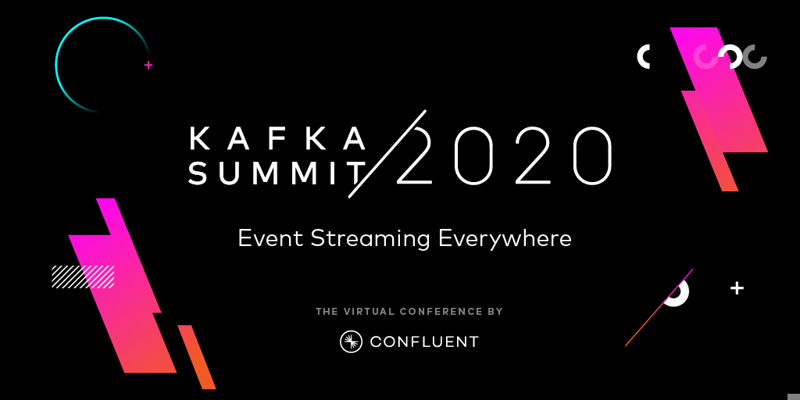Call for Speakers

Kafka Summit 2020
24 Aug 2020
25 Aug 2020
Online
events.kafka-summit.org/2020
Discover the World of Streaming Data
As streaming platforms become central to data strategies, companies both small and large are re-thinking their architecture with real-time context at the forefront. Monoliths are evolving into Microservices. Datacenters are moving to the cloud. What was once a ‘batch’ mindset is quickly being replaced with stream processing as the demands of the business impose more and more real-time requirements on developers and architects.
This revolution is transforming industries.
What started at companies like LinkedIn, Uber, Netflix and Yelp has made its way to countless others in a variety of sectors. Today, thousands of companies across the globe build their businesses on top of Apache Kafka®. The developers responsible for this revolution need a place to share their experiences on this journey.
Kafka Summit is the premier event for data architects, engineers, devops professionals, and developers who want to learn about streaming data. It brings the Apache Kafka community together to share best practices, write code, and discuss the future of streaming technologies.
Welcome to Kafka Summit 2020!
Call for Speakers
03 Feb 2020
17 May 2020
Do you have a great Kafka story to share?
Speaking at Kafka Summit is a great way to connect with hundreds of your peers, become more involved in the Kafka community, and have a public platform for you to share your story of the future of streaming platform.
Abstract Submissions
We are looking for your most interesting, most informative, most advanced, and most generally applicable talks on Apache Kafka® and the tools, technologies, and techniques in the Kafka ecosystem. Winning submissions will make it clear that you understand how to take your knowledge and experience and transfer it to Kafka Summit attendees. For example:
- A deep dive into a recent Kafka feature or a KIP under development
- Patterns you have developed while building event-driven systems
- Development techniques, libraries, and debugging techniques that have helped you build event-driven systems
- An experience report about the Kafka-based system you’ve built, including takeaways that the audience can put into practice right away
- Beginner-level introductions to Kafka, Connect, the Streams API, KSQL, and other ecosystem tools
- Specific explanations of how Kafka and stream processing enabled you to build a solution unique to your industry, and applicable to others with similar use cases
Submit fresh ideas, unique perspectives, and thought-provoking discussions that will give our attendees a good time and send them home better-informed and more capable than they came. So do your best to stand out by submitting relevant, engaging, creative, and entertaining proposals.
Speaking sessions are 40 minutes in length including time for Q&A. You must submit a separate entry for each topic.
Key submission fields to prepare:
- Previous speaking experience (100 words max)
- Speaker bio (100 words max)
- Session title
- Session Description (include Key Takeaways)
What You’ll Get If You’re Selected:
- Full conference pass
- Exclusive swag only available to speakers
- Recognition on the Kafka Summit Austin 2020 website, with your headshot and bio
- Adoration of your peers
Important Dates:
Call for Papers opens: February 4, 2020
Call for Papers closes: May 17, 2020
Notifications sent: June 15, 2020
Presentations due for initial review: July 6, 2020
==
Please review the Kafka Summit Code of Conduct.
event fee
You will receive a complimentary conference pass. Travel and accommodation expenses remain your responsibility and are not paid for by Kafka Summit or Confluent.